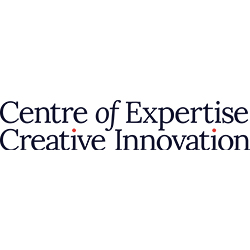Uit het vooronderzoekvan het project Duurzamelearning communities: Oogstenin de Greenportblijkt dat12 factorenhierbijvan belangrijk zijn. Deze succesfactoren staan centraal in de interactieve tool Seeds of Innovation. Ook komen uit het vooronderzoek, aangevuld met inzichten uit de literatuur en tips om de samenwerking door te ontwikkelen en meer gebruik te maken van de opbrengsten 12 succesfactoren met toelichting, belangrijkste bevindingen en tips voor ‘hoe nu verder’, Poster, Walk through, De app die learning communities helptde samenwerkingnaareenhogerplan te tillenen innovatieveopbrengstenoptimaalte benutten.
MULTIFILE

The research describes and evaluates the implementation of the experimental pilot “Innovation Lab: Sustainable (Creative) Society” within a regular curriculum of International Communication major, specifically, the 4th year Public affairs specialisation.The experimental innovation lab aimed to embed creativity and innovation in the regular curriculum. The focus on creativity was chosen, because it is increasingly acknowledged that creativity and innovation are essential qualities of the future professional who needs to deal with complexity and uncertainty of our world and who aims to develop a sustainable society. In other words, the development of sustainable society is not possible without creativity, and thus, the future is of Sustainable (Creative) Society.
DOCUMENT

As the Dutch population is aging, the field of music-in-healthcare keeps expanding. Healthcare, institutionally and at home, is multiprofessional and demands interprofessional collaboration. Musicians are sought-after collaborators in social and healthcare fields, yet lesser-known agents of this multiprofessional group. Although live music supports social-emotional wellbeing and vitality, and nurtures compassionate care delivery, interprofessional collaboration between musicians, social work, and healthcare professionals remains marginal. This limits optimising and integrating music-making in the care. A significant part of this problem is a lack of collaborative transdisciplinary education for music, social, and healthcare students that deep-dives into the development of interprofessional skills. To meet the growing demand for musical collaborations by particularly elderly care organisations, and to innovate musical contributions to the quality of social and healthcare in Northern Netherlands, a transdisciplinary education for music, physiotherapy, and social work studies is needed. This project aims to equip multiprofessional student groups of Hanze with interprofessional skills through co-creative transdisciplinary learning aimed at innovating and improving musical collaborative approaches for working with vulnerable, often older people. The education builds upon experiential learning in Learning LABs, and collaborative project work in real-life care settings, supported by transdisciplinary community forming.The expected outcomes include a new concept of a transdisciplinary education for HBO-curricula, concrete building blocks for a transdisciplinary arts-in-health minor study, innovative student-led approaches for supporting the care and wellbeing of (older) vulnerable people, enhanced integration of musicians in interprofessional care teams, and new interprofessional structures for educational collaboration between music, social work and healthcare faculties.
The pace of technology advancements continues to accelerate, and impacts the nature of systems solutions along with significant effects on involved stakeholders and society. Design and engineering practices with tools and perspectives, need therefore to evolve in accordance to the developments that complex, sociotechnical innovation challenges pose. There is a need for engineers and designers that can utilize fitting methods and tools to fulfill the role of a changemaker. Recognized successful practices include interdisciplinary methods that allow for effective and better contextualized participatory design approaches. However, preliminary research identified challenges in understanding what makes a specific method effective and successfully contextualized in practice, and what key competences are needed for involved designers and engineers to understand and adopt these interdisciplinary methods. In this proposal, case study research is proposed with practitioners to gain insight into what are the key enabling factors for effective interdisciplinary participatory design methods and tools in the specific context of sociotechnical innovation. The involved companies are operating at the intersection between design, technology and societal impact, employing experts who can be considered changemakers, since they are in the lead of creative processes that bring together diverse groups of stakeholders in the process of sociotechnical innovation. A methodology will be developed to capture best practices and understand what makes the deployed methods effective. This methodology and a set of design guidelines for effective interdisciplinary participatory design will be delivered. In turn this will serve as a starting point for a larger design science research project, in which an educational toolkit for effective participatory design for socio-technical innovation will be designed.
Centre of Expertise, onderdeel van Amsterdamse Hogeschool voor de Kunsten, Hogeschool van Amsterdam, Hogeschool Inholland, +1
